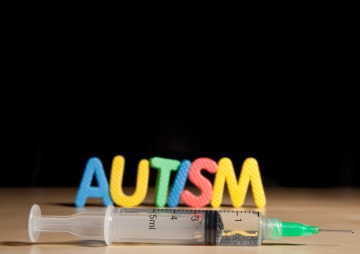Vaccinations and Autism
Missing out on a good health insurance plan can put you in a bad place financially, but if you ever get sick, even cheap coverage can save you thousands. Of course, most of us aren’t planning on getting sick any time soon, and in our collective effort to stay healthy, many of us have been vaccinated against many of history’s most ruthlessly fatal diseases. Diseases like measles, mumps, and smallpox all sound like relics of the past because, thanks to vaccination, these life-threatening diseases are all but nonexistent in the United States.

Do Vaccines Cause Autism?
Historically speaking, vaccines are powerful disease-preventing, life-saving treatments, but many Americans are worried that the negative side effects might outweigh the undeniable benefits of vaccination. Autism is among the chief concerns of “anti-vaxxers”, a faction of parents, professionals, and individuals that believe that vaccines can cause a wide range of negative effects. You’ve likely met an anti-vaxxer or two, and at first glance, the information they provide can be convincing. But is there any scientific basis to their claims?
So far, it appears there is no substantial evidence that any vaccination can cause autism. No study has been able to find evidence condemning vaccinations despite decades of studies and reevaluations of the data available. At this point, even if a study did find a link, the positive results would fall within a margin of error. Of course, the pursuit of science is just that – a pursuit – and it’s always important to revisit and reevaluate the facts.

Research, Studies, and More Information
A Google search can help you find affordable health insurance, but just as quickly, it can provide an ocean of evidence proving vaccines to be autism-free. Just a quick search yields things like this study published in the Journal of the American Medical Association, this systematic review conducted by Cochrane, and this article explaining how this misconception started in the first place.
In the final article linked, you’ll find the writings of Brian Deer where he exposes the falsified statistics and falsehoods perpetuated by the original Lancet study – one of the only studies to ever suggest a link between vaccines and autism. Here’s another article that labels the Lancet study as unreliable.
Of course, many anti-vaxxers are simply concerned, keeping the “better safe than sorry” mindset while ignoring the potential for infection. Are children receiving a concerning amount of vaccines? Not according to available scientific evidence. Are all childhood vaccines important? If you want your child to live to adulthood, then yes. Is autism more common than ever? Statistically, yes, more people are being diagnosed with autism, but since we’ve already arrived at the conclusion that vaccines do not cause autism, this rise in diagnosis could be caused by the fact that medical science keeps broadening the definition of “autism”. Today, the word “autism” describes a wide range of disorders of varying severity, and so far, none of them have officially been linked to vaccinations. Vaccinations, however, have been proven safe and effective, saving countless lives.
During the 20th century, an estimated 500 million people died from smallpox. There hasn’t been a naturally occurring, documented case of smallpox since 1977. If it is proven that vaccines do, in fact, cause autism, then that is a different story. But in the meantime, nothing makes you worry less than a cheap health insurance plan and help when you need it.



